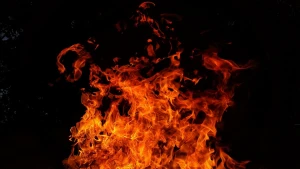
Mariupol faces risk of deadly cholera outbreak
A number of factors could lead to a cholera outbreak in Russian-occupied Mariupol
This was reported by Mariupol’s city council.
Mariupol is facing the threat of tens of thousands of deaths due to a cholera epidemic, which can be caused by a number of factors. In particular, according to the City Council, the central water supply and sewerage system is not working, and in addition, Mariupol is literally drowning in garbage and sewage. Spontaneous burials are located in almost every yard, and the summer heat has accelerated the decomposition of thousands of corpses under the rubble. In addition, people do not have medicine and are not able to receive qualified medical care. The sea and waters are constantly polluted with garbage, sewage and "corpse" waters.
The cholera epidemic is probably already a real threat, not a potential one. The Mariupol Mayor’s adviser Petro Andryushchenko noted this on a live TV marathon. According to him, the Russian occupation authorities are beginning to close the captured city for quarantine, there is information that the disease is spreading in the city.
"We are watching the city being closed. In addition, we started receiving the information that the Russian side in Rostov-na-Donu has already prepared separate infectious disease units, where they are preparing to take their own infected troops in, and the word cholera is already mentioned inside the city and by their occupation government," he said.
Meanwhile, according to Andryushchenko, Russia has chosen "the most cynical" of all possible scenarios to fight the epidemic, simply by blocking people in Mariupol and saying that "whoever survives will survive."
The Mariupol Mayor’s adviser added that the humanitarian situation in the city is getting worse: local residents receive drinking water every two days and there are problems with food. The occupants said that only retirees and people with disabilities will receive free food from July 1.
The city council emphasises that only the resumption of the green corridors and an international humanitarian mission with full evacuation can save Mariupol.
For reference. Cholera is an acute diarrheal infection that occurs when eating or drinking food contaminated with O1 or O139 Vibrio cholerae bacteria. The source of the pathogen is a human - a patient or a carrier of vibrios. Cholera is transmitted by faecal-oral route from person to person: when consuming contaminated water, vegetables, fruits, bathing, as well as through food and during household contact. Without proper treatment, it can be terminal. With timely treatment, a mild form of cholera ends in complete recovery. In the absence of effective therapy for 2-3 days the patient may fall into a coma. If treatment is not started in time, the mortality rate can reach 10%, and without systematic treatment, the disease takes up to 60% of lives.
The incubation period of cholera lasts from several hours to 5 days. The disease usually begins acutely and leads to severe dehydration.
Cholera symptoms:
-
Diarrhoea, vomiting, abdominal pain. Frequent (up to 10 or more times a day) diarrhoea. At the same time a person loses a lot of fluid - up to 20 litres per day. This results in blood clotting and dehydration;
-
Due to the microelements loss with fluid, muscle spasms appear, most often - starting with the calf muscles;
-
Exacerbation of facial features, sunken eyes, blue lips and ears;
-
Cold skin (cholera is one of the few infections that is accompanied by normal or even low body temperature);
-
The skin loses elasticity, easily folds and straightens for a long time, and the skin of the feet and hands becomes wrinkled;
-
Shortness of breath, severe weakness.
Vibrio cholerae can remain active in water for a long time, in food at room temperature - for 2-5 days, on the surface of fruits and vegetables in sunlight - for 8 hours, at low temperatures and in sea water - 2 weeks or more, in the intestines of some river and marine animals - up to several months. It dies within a minute if boiled.
- News














































